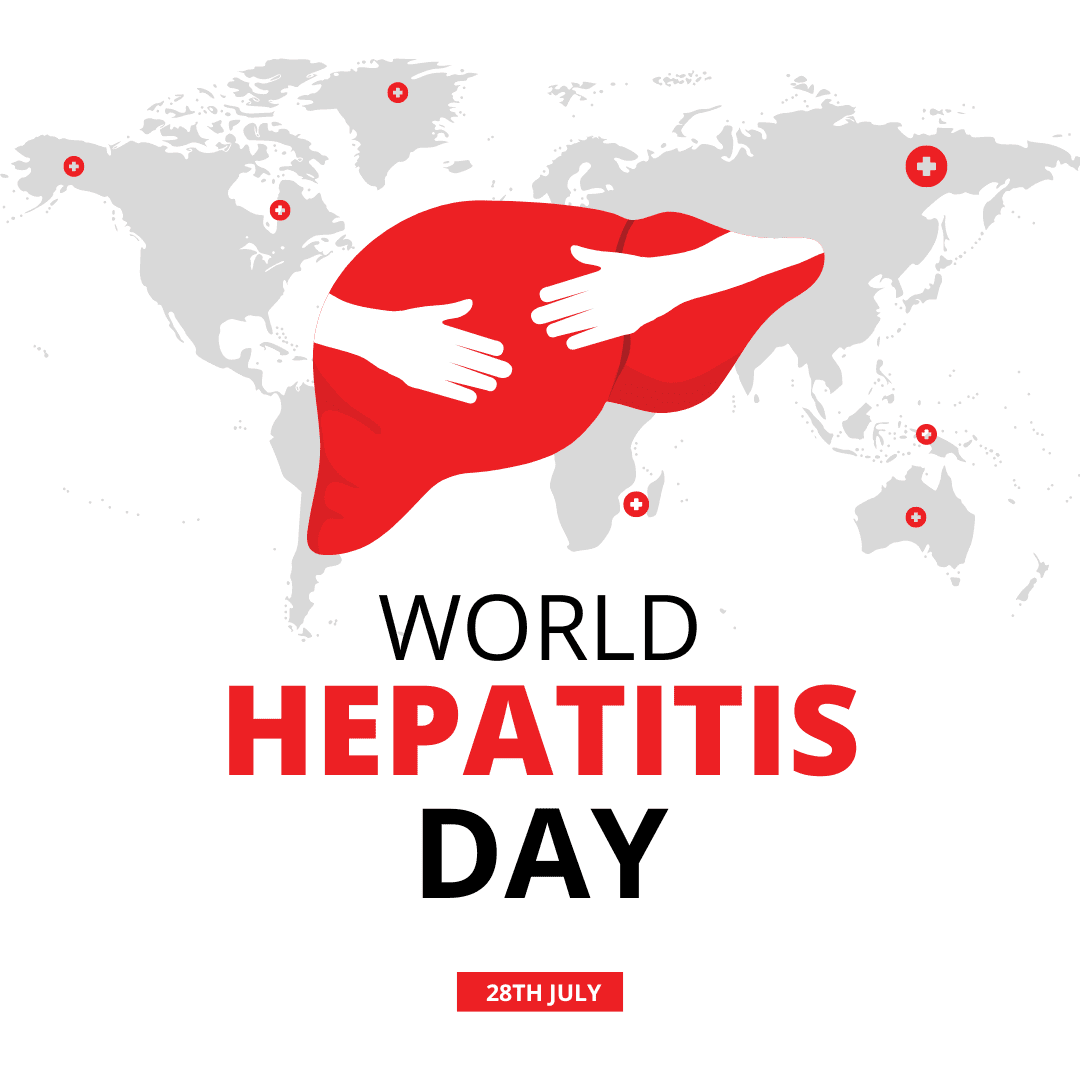World Hepatitis Day
What is hepatitis? Hepatitis is inflammation of the liver which can lead to cirrhosis.
On world hepatitis day, we are raising awareness about viral hepatitis. Here’s what you need to know:
What are the types of Viral Hepatitis?
- Hepatitis A (HAV): Spread through contaminated food/water; preventable with a vaccine.
- Hepatitis B (HBV): Transmitted through bodily fluids; can be chronic and severe. Vaccination is crucial.
- Hepatitis C (HCV): Spread via blood contact; often chronic but treatable with antiviral medications.
- Hepatitis D (HDV): Occurs with HBV infection; prevented by HBV vaccination.
- Hepatitis E (HEV): Spread through contaminated water; usually acute and self-resolving.

What are the Symptoms?
- Jaundice (yellowing skin/eyes)
- Fatigue
- Abdominal pain
- Nausea
- Dark urine
How is Hepatitis Prevented?
- Vaccination: Available for HAV and HBV.
- Hygiene: Handwashing, safe food/water.
- Safe Practices: Use condoms, avoid sharing needles.




















